Maintaining your online privacy has become increasingly difficult. If you’re tired of platforms and companies snooping through your personal data, it’s time to take action. In this video, Kim shows you seven ways to shut out Facebook, Amazon, Twitter, people-search sites and others.
Scary new malware that live streams your screen - Here's what to look for

Ever feel like somebody is watching you? Years of horror movies have given us a real sense of fear of being watched by unsuspecting people. When it comes to tech, malware could be the suspect. Millions of PCs are infected with malware. Tap or click here to check your Windows computer now.
Unfortunately, a new type of malware, called BIOPASS RAT, brings that fear of being watched into a terrifying new reality. If you want to avoid being spied on, you’ll need to be on the lookout for this newest threat.
This newest malware can be spotted if you know what to look for. Keep your eyes peeled and learn how to protect yourself before BIOPASS RAT comes looking to make your computer its next victim.
Here’s the backstory
Using Adobe Flash Player and Microsoft Silverlight, the malware hides inside the Python script to make its way onto your computer. Once it sneaks past your defenses, it’s able to record and broadcast your computer screen.
This allows thieves to sit unnoticed in the background for as long as it takes to capture footage of you entering secure details into your computer. This could include banking information, Social Security numbers and other personally identifying information, making identity theft a breeze.
Worried about being hacked? Here are 5 essential steps to protect yourself from ransomware
Protect yourself
The malware was initially spotted in faulty plugin downloads for online gambling sites. The best way to protect yourself is to be mindful of downloading plugins unless they come directly from a manufacturer’s website. Unfortunately, malware can still find its way even to manufacturer sites, so often, mindfulness is not enough to protect yourself.
Keep your software update
Malware and other cybersecurity threats are often successful because they find weak spots in a person’s computer to enter. These points of entry typically come from software not being up to date.
A great way to protect yourself is to keep all your systems and software updated. Keep your automatic updates on and periodically double-check to make sure everything is as current as it should be.
Change these 3 hidden Google settings to protect your privacy
Big Tech companies are woven into the fabric of our everyday lives. We message each other on our Apple and Android smartphones, share photos on Facebook, shop on Amazon, work on our Microsoft and Apple computers, and Google things all day long.
Warning: Free VPNs are putting you at risk
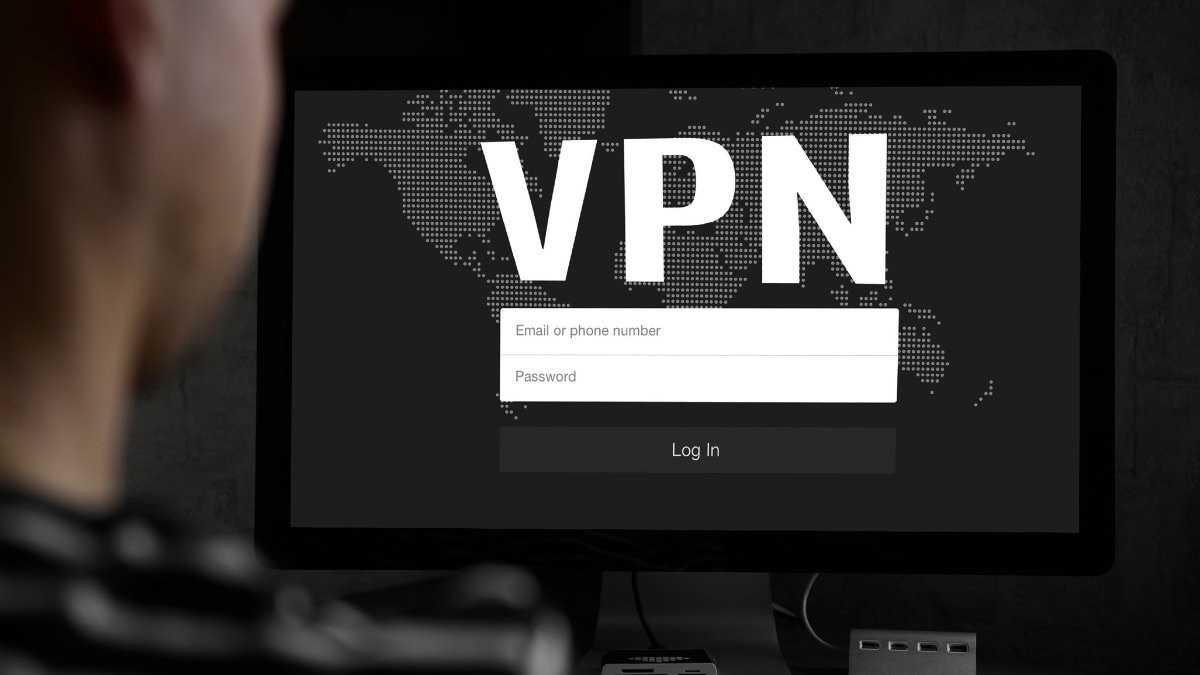
There’s nothing wrong with trying to save a little money every now and then. Cutting back on dining out or getting a $6 latte every day is a good place to start.
But one thing you definitely don’t want to skimp on is online security. You think you’re saving money with free VPN downloads or apps, but they will cost you in the end.
5 hidden ways a VPN can make life better and more secure
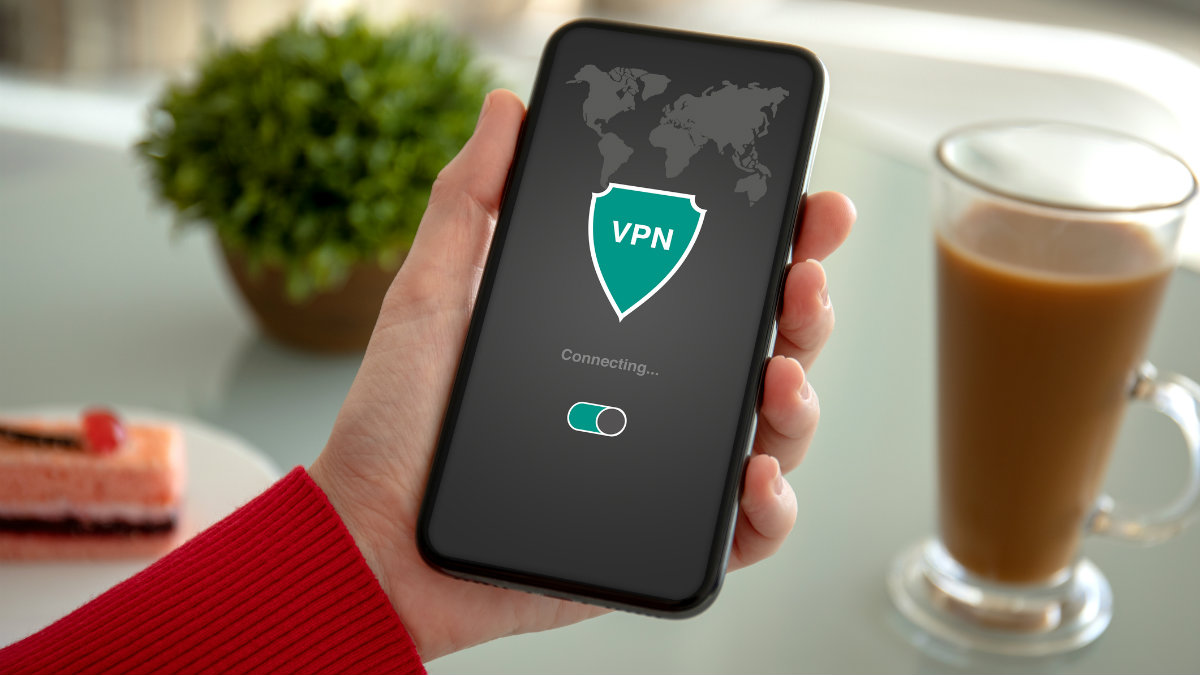
Between all the cybercriminals and downright snoops in the world, it’s getting more difficult to protect your privacy.
A VPN gives you a secure bridge between your devices and the internet. You might not even realize just how important this is and all the ways a VPN comes in handy. Keep reading for five uses you might not know about.
Survey: 86% are fed up with Big Tech. Here’s how to get your privacy back
Years ago, we searched the web, bought new gadgets, and typed in our email addresses without much thought. As far as accounts went, “Hey if it’s free, sign me up,” we thought.
Fast forward to now, and you can’t go online or turn on the news without hearing about the control Big Tech has on our lives — and the growing resentment around it.
Warning: Hackers can crack these cheap smart plugs and worm into your network
Connected devices and smart gadgets can turn an ordinary home into a technological heaven. Switching on all the lights in the house has never been so easy. Remotely turning up the cool breeze from a connected fan is bliss. Tap or click here for 11 smart home gadgets you’ll actually use.
Stop using that same old password for your online accounts - Try this instead
Hackers have plenty of tricks when it comes to making you their victim. They can send you emails containing viruses and malware. They can send you links that go to malicious websites. They can get you through phony social media accounts and apps that look like legitimate sources.
Use Amazon? Make these 5 changes now to protect your privacy
Amazon’s pandemic boom shows no signs of slowing down. Every single minute in the first quarter of this year, the e-commerce giant brought in $837,330.25.
For Big Tech companies, collecting your data is a vital part of their profits. You can take your privacy back as long as you know the proper settings to change. Tap or click for eight hidden maps and trackers you need to switch off now.
7 strategies to delete yourself from the internet
15 essential items to protect your body and data from physical and cyber attacks
When is the last time you stocked up on items to protect yourself? Maybe it’s been a while since you thought about how you protect your devices, information and body. Upgrade your security setup and protect your body and data at once with these 15 must-haves.
The tracking secret your ISP doesn't want you to know
Let’s talk about cookies — not the kind you eat, but the ones that hold all the information your browser saves from websites you visit. Cookies are tiny files that contain your logins, user names, passwords and ads you’ve seen. Basically, they’re little trackers that follow you around the web, which means they have a ton of data on you and your browsing habits.
Top 20 worst passwords: Is yours on the list?
Has it been a while since you changed your password? If you’re using an old password or are reusing passwords across multiple sites, you’re basically asking for trouble.
Password security is critical if you value your privacy. Weak, reused or clearly bad passwords open you to being targeted for identity theft and other cybercrimes by hackers and other bad guys. Want more info? Tap or click here for 10 internet crimes you need to know about.
5 router admin settings you need to change to keep hackers out
Router security isn’t the most exciting thing in the world, but when it comes to the safety of all the devices in your home, it’s incredibly important. Kim shows you how to protect yourself and your family with just a few simple tweaks of your router’s settings, directly from the admin page. Don’t worry, these are simple changes anyone can make.
The essential privacy tool to protect you from Big Tech
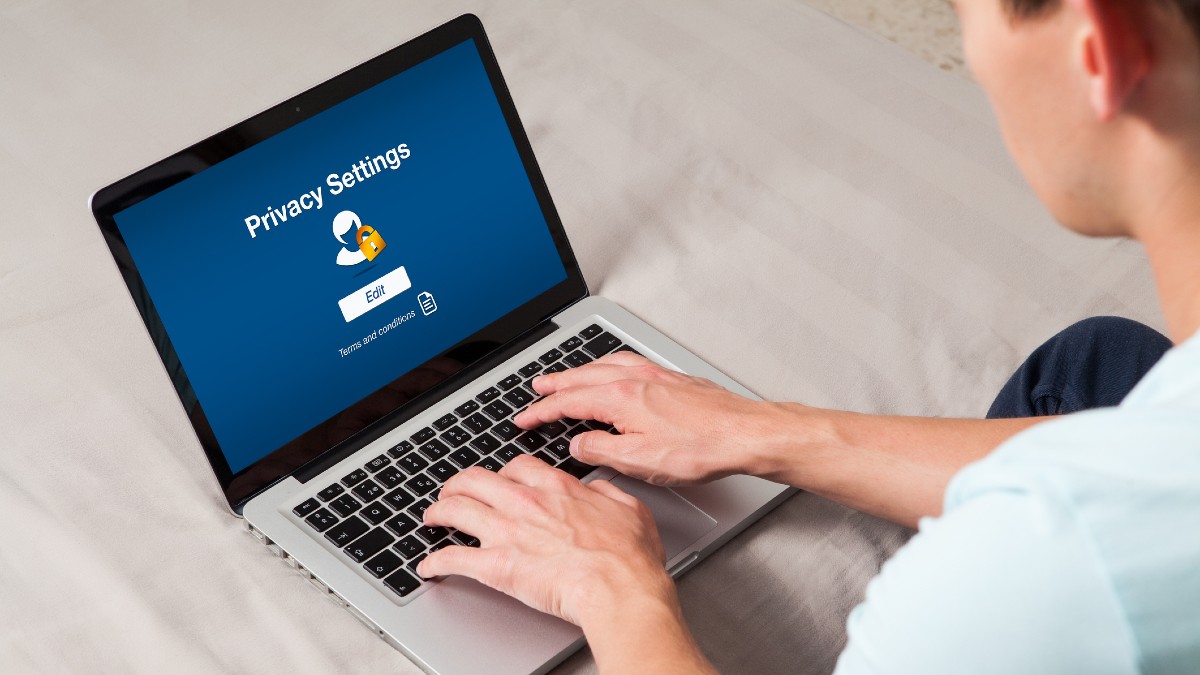
My inbox is filled with people asking how they can stay out of Big Tech’s reach.
It starts with the services you use. Yes, they’re mostly free, but remember what you’re paying with: Your data. Tap or click here for services you can use that aren’t under Big Tech’s control.
This handy Chrome update helps fix your bad passwords
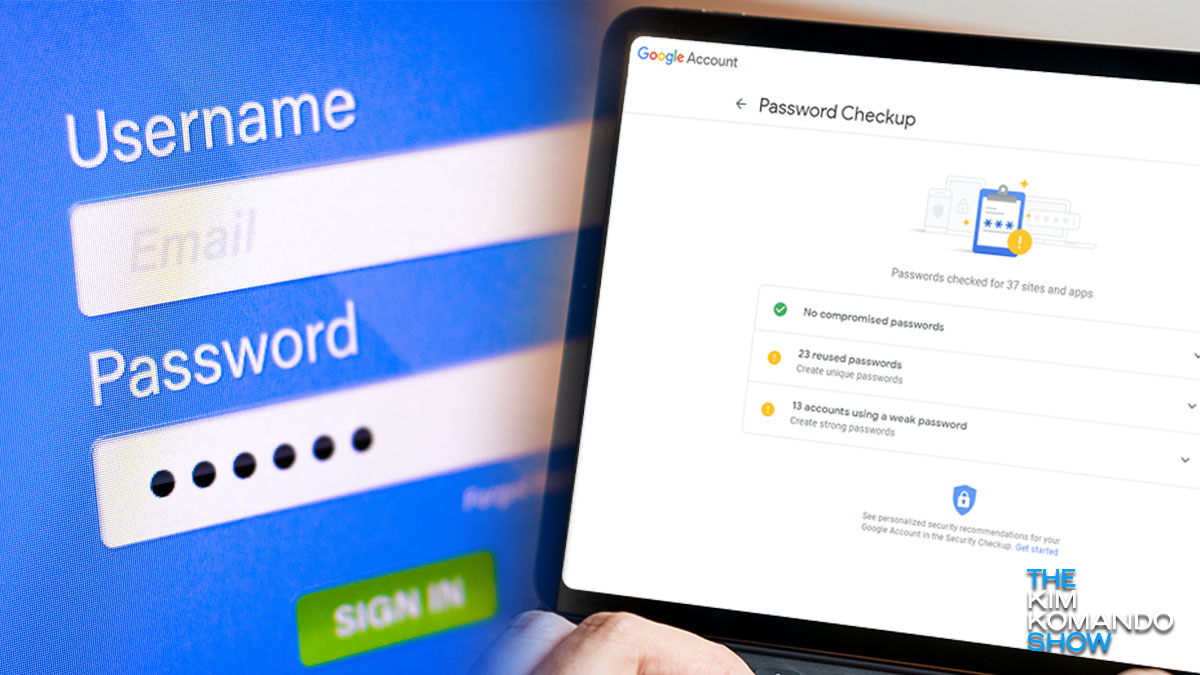
If you want to keep your personal information safe, you need to use strong passwords for all online accounts. Not all of us take the time to do that, even though easy or repetitive passwords put you at risk of being compromised by cybercriminals.
Kim's DIY Security tip: 7 online security basics everyone should know
Security threats are pretty much everywhere online these days. Data breaches, phishing scams, ransomware attacks and identity thieves … The list goes on and on. So how can you stay safe? In this DIY Security tip, Kim shares 7 ways you need to protect yourself online. There really is no excuse to ignore these habits anymore — not if you want to be protected.
Ditch your credit card: 3 safer ways to pay online
Shopping online with your credit card isn’t as safe as you think. Wherever there’s money involved, scammers gather. That’s why you need a secure method to pay or send money on the web. We’ll show you three options safer than your credit or debit card and help you settle on a new way to pay, shop and send money online.
These are the 20 worst passwords you can use
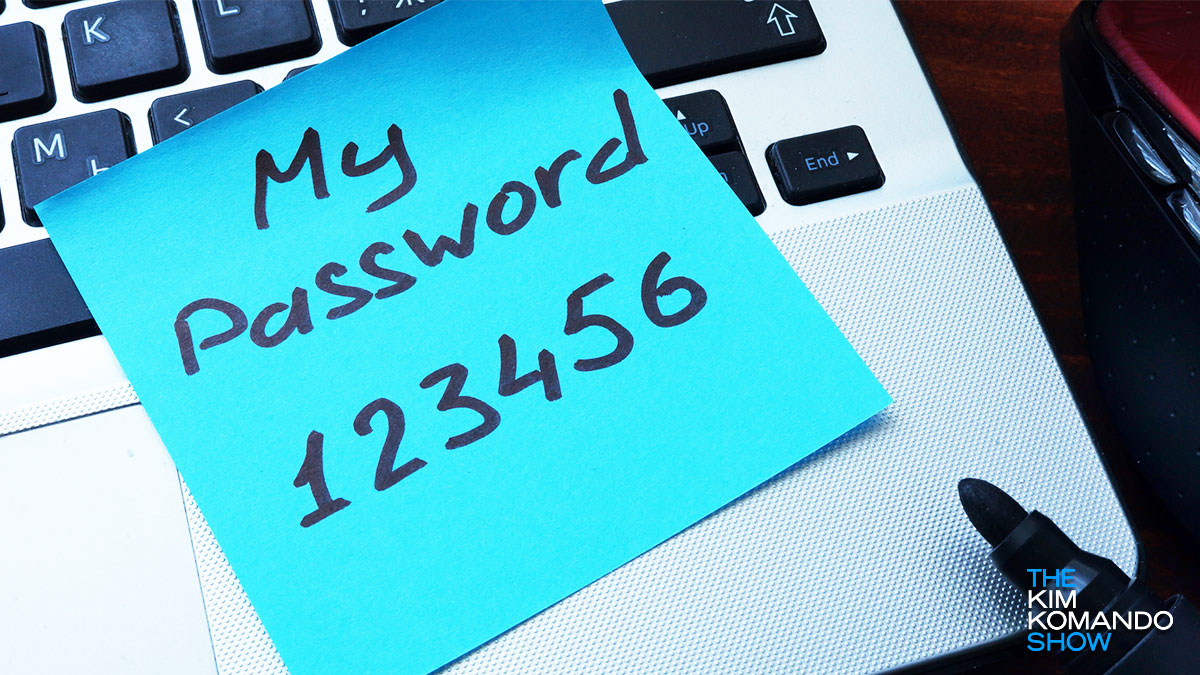
It’s a tough balancing act to create a password that’s both strong and easy to remember. If you make your passwords too simple, you can actually put your accounts in danger of cyberattacks.
The strongest passwords always use a complex arrangement of numbers, letters and symbols that make them tricky to guess. If you don’t repeat characters, it can also be difficult for hackers to brute force them. Tap or click here to see our guide to stronger passwords.
Your passwords are exposed - here's what to do about it
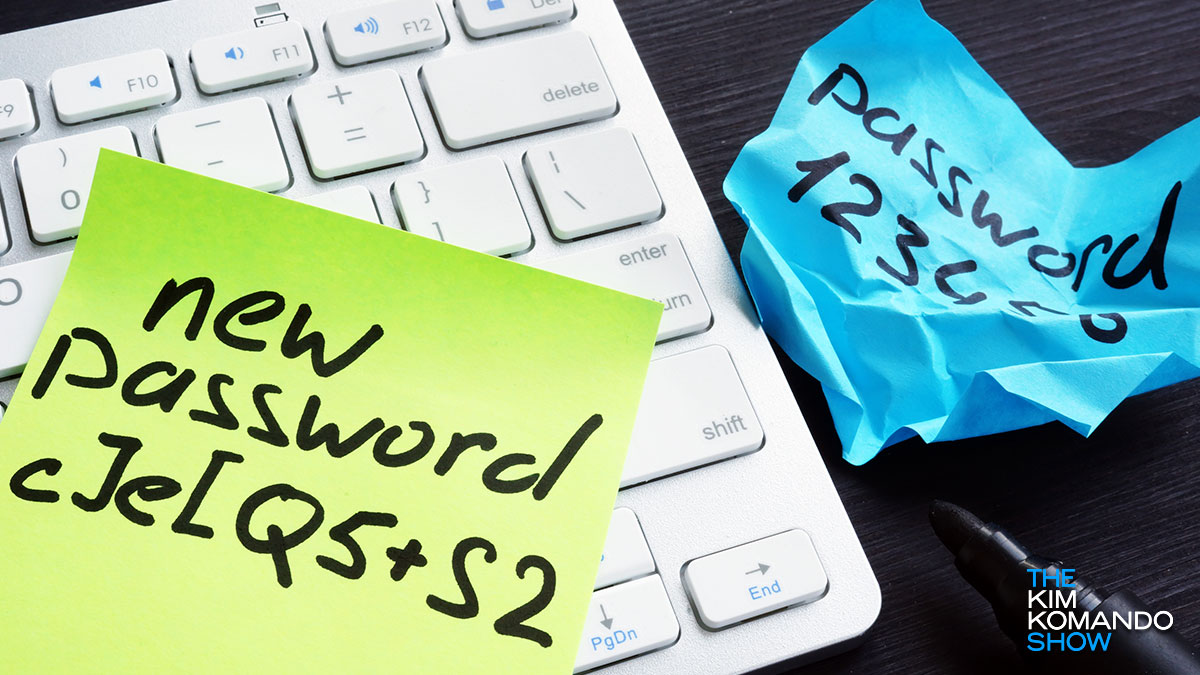
Pop quiz: How many passwords do you use online? It’s probably more than you can remember right away, and most of the world is right there with you. According to a report from cybersecurity firm Digital Shadows, the average person uses 191 services that require passwords — and more than 15 billion stolen credentials are in circulation. That’s a 300% increase since 2018!
Amazon security settings you must change: Order history, searches, recordings
There’s no question Amazon dominates the online shopping world. But you might not like just how much the tech giant knows about you. If you want to get the most out of Amazon without sacrificing your privacy, it’s time to optimize your profile settings so the company (and advertisers) know as little about you as possible. These five critical security settings will give Amazon access to just the bare necessities of your personal data.


